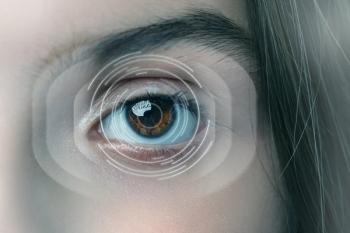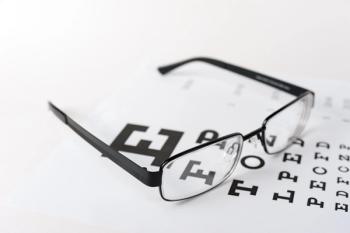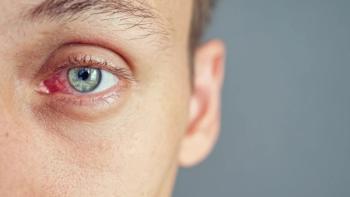
Children With Myopia Have Higher Levels of Depression, Anxiety
Research highlights link between impaired vision and mental health in children.
Children with myopia experience significantly higher levels of depression and anxiety than their peers without vision impairment, according to a recent study.
In the study, published in Ophthalmology1 and sponsored by nonprofit Orbis International, researchers also found that surgery to correct strabismus significantly improved symptoms of depression and anxiety in children.
The study “builds our understanding of the link between vision impairment, strabismus and children's mental health,” Orbis said in a news release.2 While there is an existing large body of work focused on the impact of vision impairment on depression and anxiety in adults, studies investigating mental health in children with vision impairment are few and have not previously been reviewed in this comprehensive way, the news release noted.
"Resilient mental health is an important requirement for children to thrive. As we see in the newly published research findings, this can be negatively impacted if a child has a vision impairment," said Nathan Congdon, director of research at Orbis International.
"With this research, Orbis has pulled together for the first time the kind of convincing evidence that can help spur governments to action on children's vision. These results are all the more compelling because the very strongest evidence we found for impact on mental health was among kids with near-sightedness, treatable with a simple pair of glasses,” Congdon added.
Researchers found that the mental health of children with vision impairment may be adversely affected because they tend to participate in fewer physical activities, have lower academic achievement and are more socially isolated.
In addition, common vision conditions like strabismus can also negatively impact children's development and maturation, “affecting not just their appearance, which can in turn affect their confidence and feelings of social belonging, but also their ability to carry out certain activities and their state of mind,” Orbis said.
The researchers reviewed nine electronic databases up to February 2021 and found vision-impaired children experienced significantly higher scores of depression (Standard Mean Difference [SMD], 0.57) and anxiety (SMD, 0.61) than children with normal sight.
Children with myopia experienced higher scores of depression (SMD, 0.59) than normally-sighted children. Strabismus surgery significantly improved symptoms of depression (SMD, 0.59; 95% CI, 0.12-1.06) and anxiety (SMD, 0.69; 95% CI, 0.24-1.14) in children.
The research has “profound implications” for health care planners when allocating resources and designing interventions to curb vision impairment, according to Orbis.
For example, in some countries, strabismus surgery is seen as a cosmetic procedure and excluded from insurance coverage, forcing families to pay out-of-pocket. “These barriers could deter patients of low socioeconomic status from seeking treatment and keep the mental health benefits of corrective surgery out-of-reach. More accessible eye care treatments will improve children's mental health and overall well-being,” Orbis said.
Additional randomized controlled trials exploring the impact of public health measures for myopia correction on mental health in children are needed, the researchers noted.
References
1. Li D, Chan VF, Virgili G, et al.
2. New study finds children with vision impairment more likely to suffer from depression and anxiety. News release. Orbis International. June 20, 2022. Accessed June 23, 2022.
Newsletter
Pharmacy practice is always changing. Stay ahead of the curve with the Drug Topics newsletter and get the latest drug information, industry trends, and patient care tips.























